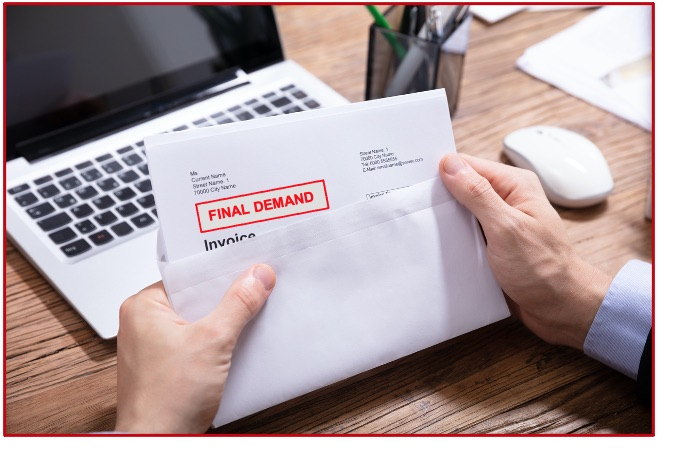
It’s so frustrating when our customer doesn’t pay, especially after we have fulfilled all of our obligations to provide the products or services with the utmost total customer satisfaction possible. Subsequently, when we start to get some payment delays, which turn into run arounds, the frustration grows and grows. At some point, there may be a tendency to inform the customer, “If we don’t receive payment by such and such a date, we will have to pass the account to a third-party collection entity, and if necessary, pursue the matter to fullest extent of the law.”
I totally appreciate letting the customer know when we’ve had it with their procrastinations and we’re not going to just let this matter disappear into the sunset.
Honestly speaking however, I wonder if this last demand letter is really necessary. Let me explain.
A while back we received a claim from a client after they had sent a final demand letter with the kind of language that I had stated above. Although professional, it set the stage for the debtor to “steel” themselves against any forthcoming collection call or letter. Then, when the debtor did in fact receive that first communication attempt from us, they seemed already prepared to maneuver out of the obligation in whatever way possible.
In addition, in many cases the debtor may actually be waiting for you to sue as a strategy to further delay payment. In their view, by the time the case gets to court, two years may have already passed, buying them plenty of time in which a settlement will have been reached anyway.
So, instead of giving them a “heads up” as to what is coming down the road, the element of surprise that the account has been turned over to a third-party collection entity, may be more effective. Sometimes when the debtor hears from a third-party collection entity for the first time, that by itself may be the impetus for moving the collection forward. This is especially true since a different voice, style, communication rhythm, and relationship can all have a different impact to the debtor.
We can always say, “We will pursue this account to fullest extent of the law.” but then it’s harder to backtrack from that until all efforts to collect without litigation have been exhausted.
Your questions and comments are most welcome (nseiverd@cmiweb.com).
Nancy Seiverd, President, CMI Credit Mediators, Inc.

